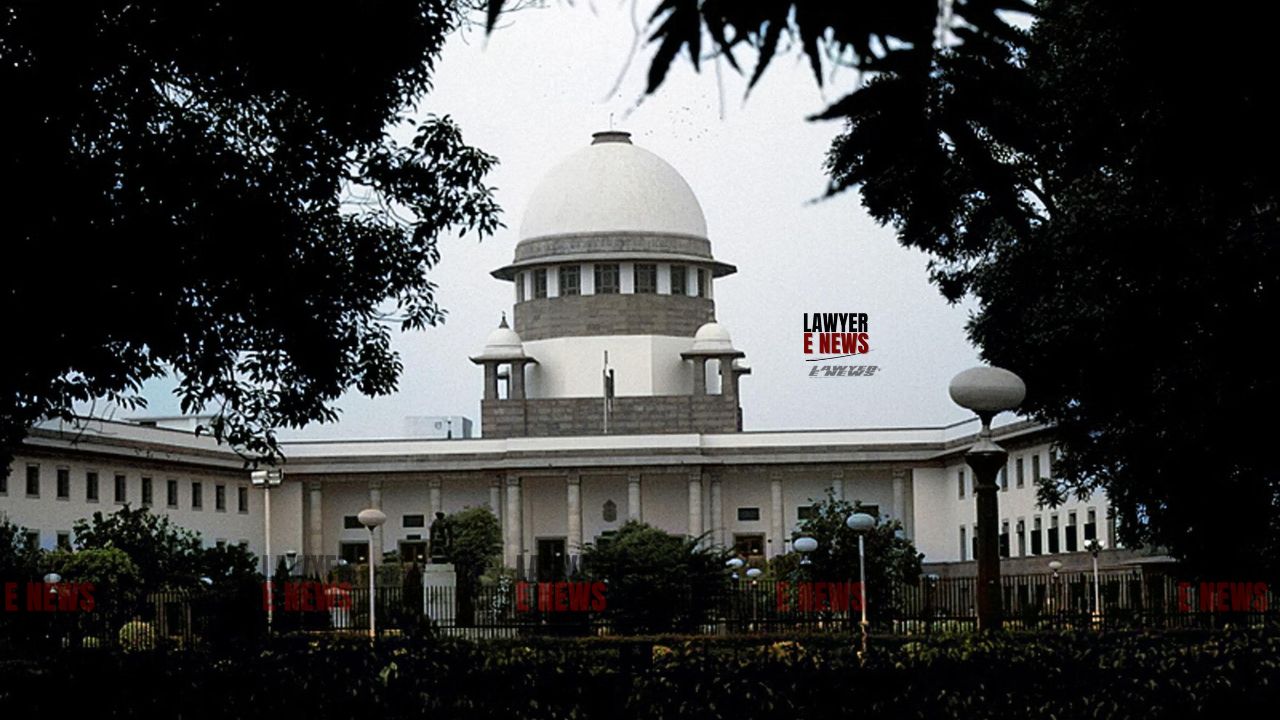-
by Admin
16 February 2026 1:47 PM



Doubt Over Weapon’s Nature Calls for Lesser Sentence – In a crucial judgment the Supreme Court of India modified the conviction of two appellants from Section 326 IPC (voluntarily causing grievous hurt by dangerous weapons) to Section 325 IPC (voluntarily causing grievous hurt), citing uncertainty regarding whether the weapons used in the assault could be classified as "dangerous weapons." The Court observed that when there is doubt about the nature and impact of a weapon, an accused must be given the benefit of the lesser offence.
Hearing the appeal in Jamser Ali & Anr. v. The State of West Bengal, a bench of Justice Dipankar Datta and Justice Manmohan ruled, "There being doubt as to whether the weapons used were dangerous, conviction of the appellants under Section 326 IPC cannot be sustained. The benefit of a lesser offence under Section 325 IPC is justified in the facts and circumstances of this case."
Considering that the appellants had already spent six months in custody and had no further criminal history since the incident in 1994, the Court modified their sentence to the period already undergone, while upholding the fine imposed by the lower court.
"From Attempt to Murder to Grievous Hurt – How the Case Progressed Through the Courts"
The case arose from an incident on August 26, 1994, where the appellants allegedly assaulted the victim (PW-9) using bamboo sticks and a wooden log (‘battam’), resulting in head injuries. The prosecution initially charged them under Section 307 IPC (attempt to murder) read with Section 34 IPC (common intention).
A Sessions Court convicted them under Section 307 IPC and sentenced them to seven years of rigorous imprisonment with a fine of ₹500 each. The appellants challenged this conviction before the Calcutta High Court, arguing that the injuries caused were not sufficient to establish an intent to murder.
The High Court accepted this argument, ruling that the conviction under Section 307 IPC was not sustainable. However, instead of acquitting them, the High Court convicted them under Section 326 IPC and reduced the sentence to three years of rigorous imprisonment.
The appellants then approached the Supreme Court, arguing that the conviction under Section 326 IPC was also incorrect, as there was no conclusive proof that the weapons used were "dangerous weapons" capable of causing death.
The Supreme Court issued notice, specifically examining whether the conviction should have been under Section 324 IPC (voluntarily causing hurt by dangerous weapons) instead of Section 326 IPC.
"Doubt Over Weapon’s Nature – Supreme Court Says Section 326 IPC Cannot Apply"
After reviewing the evidence, the Supreme Court found gaps in the prosecution's case regarding the nature of the weapons used. The Court noted that there was no clarity on the size, weight, or impact of the bamboo sticks and wooden log used in the attack.
The judgment emphasized, "The evidence on record does not establish whether the weapons used were of such nature that they were likely to cause death. There is no medical evidence proving that the injuries were inflicted using 'dangerous weapons' within the meaning of Section 326 IPC."
The Court also pointed out inconsistencies in the victim’s statements. The victim did not name the appellants as his assailants when he was initially treated at the primary health center or later at the sub-divisional hospital. He only made these allegations at a later stage, raising questions about the reliability of his claims.
Observing these discrepancies, the Supreme Court ruled that conviction under Section 326 IPC was not sustainable and reduced the conviction to Section 325 IPC, which deals with grievous hurt but does not require the use of a dangerous weapon.
"Punishment Should Fit the Circumstances – Supreme Court Reduces Sentence to Time Already Served"
Turning to the question of sentencing, the Supreme Court considered several key factors before modifying the punishment.
The judgment noted that:
The offence took place in 1994, more than 30 years ago.
The appellants had already served six months in custody.
They had not been involved in any further criminal activities since the incident.
Taking these factors into account, the Court ruled, "Having considered the totality of the facts and circumstances, the interests of justice would be sufficiently served if the appellants are sentenced to imprisonment for the period already undergone and made to bear the fine imposed."
The Court set aside the three-year imprisonment imposed by the High Court and ruled that the appellants need only pay the fine amount within a month.
However, the Court added a cautionary provision, stating that if the appellants failed to deposit the fine within a month, their sentence would stand revived, and they would have to serve one year of imprisonment, reduced by the time already spent in custody.
"Justice Must Balance Guilt and Punishment – Supreme Court Affirms Principles of Sentencing"
This judgment serves as an important precedent on how courts should evaluate convictions under Section 326 IPC. The ruling reinforces that:
If there is doubt about whether a weapon qualifies as "dangerous," an accused must receive the benefit of a lesser offence.
Sentences should be proportionate to the crime, especially when a case is decades old, and the accused have not reoffended.
Courts must take into account delays in the justice system and the changed circumstances of an accused before imposing extended sentences.
By reducing the conviction from Section 326 IPC to Section 325 IPC and modifying the sentence to time already served, the Supreme Court has reaffirmed that punishment should be based on clear legal findings, not assumptions about the nature of the weapon used.
This ruling ensures that criminal liability is determined on precise legal grounds, while also taking into account the passage of time and rehabilitation of the accused.
Date of decision: 03/03/2025
